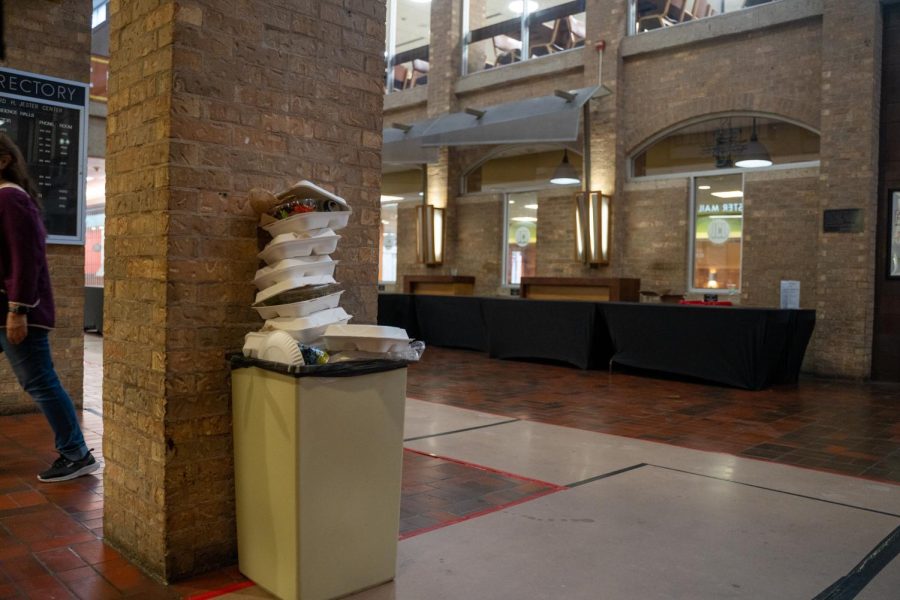
June 11, 2023
University Housing and Dining plans on renewing their composting contract and adding compost bins in dining halls for the upcoming fall semester, said Erich Geiger, executive director of residential dining and Longhorn hospitality.
UHD began composting in 2008, but its composting contract with Organics by Gosh, a composting facility in East Austin, expired in January 2020. Geiger said UHD did not renew the contract because the contract’s expiration was quickly followed by the pandemic. Since then, their compostable single-use cups, along with 30 tons of food waste, go from the dining hall to the landfill yearly.
Geiger said UHD will only compost during the fall and spring semesters, and not summer because high heat can create a sanitation problem.
Lindsey Hutchison, senior Zero Waste coordinator at the University, said ensuring people compost correctly is an ongoing challenge. If a student drops one piece of non-compostable material in a compost bin, the whole truckload of compost will be dumped in the landfill. She said 40-45% of the landfill trash from campus can be composted material. Food makes up 26% of compostable landfill trash, which releases methane, a greenhouse gas, into the atmosphere if sent to the landfill.
“We need to find another option other than putting it in the landfill, and composting is that option,” Hutchison said.
Geiger said he plans on working with the University and student groups to train students to separate their compost correctly.
“When students say ‘Yes, we can do this,’ that’s all it takes,” Geiger said. “We can’t do this by ourselves — we have to do it together.”
English sophomore Maddie Hajovsky decided to focus on living more sustainably a couple of years ago. She said her mom’s new garden at home presented the perfect opportunity to start composting. She said although not every student will actively compost, it’s worth it to have a program for students who want to make a habit of composting.
“It’s necessary when you just think about the sheer volume of students (who) are using the dining halls,” Hajovsky said. “Just watching how quickly those trash cans fill up and thinking about where that’s going. That’s really horrifying.”
Along with the rest of campus’ compost, the dining hall compost would be picked up by Solid Waste and Recycling, a group run by UT Facilities, and taken to Organics by Gosh, Hutchison said. Once the compost is ready, it turns into well-nourished and more environmentally friendly soil, which Organics by Gosh then packages and sells.
Hutchison said this soil serves as a natural fertilizer which, as opposed to chemical fertilizer, creates a better environment for good bacteria, organisms and plants. It also absorbs more moisture, which conserves water, and better filters out pollutants going into the groundwater.
“We’re looking at ways to help benefit — not just our students on campus — but (lowering) our carbon footprint,” Geiger said. “We’ve committed to reducing our carbon footprint as part of our overall mission.”
